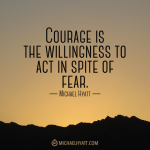At Palmy Boys’
Research has found that students who turned off their devices or who messaged for less than 30 minutes after lights out performed significantly better in school than those who messaged for more than 30 minutes after lights out…… read more.
It has become a cultural cliché that raising adolescents is the most difficult part of parenting. It’s common to joke that when kids are in their teens they are sullen, uncommunicative, more interested in their phones than in their parents and generally hard to take. But this negative trope about adolescents misses the incredible opportunity to positively shape a kid’s brain and future life course during this period of development….. read more.
Why do teenagers seem so much more impulsive, so much less self-aware than grown-ups? Cognitive neuroscientist Sarah-Jayne Blakemore compares the prefrontal cortex in adolescents to that of adults, to show us how typically “teenage” behavior is caused by the growing and developing brain….. read more.
The Adaptable Mind (11 mins) explores the skills we need to flourish in the 21st Century… read more.
A film devoted to developing who we are and who we want to be in the world… read more.
Not sure about what you want to do? Your first step is to understand who you are and what you want – both from your work and your life. Here are some key questions you can ask yourself to help decide on your next steps…. read more.
Siegel illuminates how brain development impacts teenagers’ behavior and relationships. Drawing on important new research in the field of interpersonal neurobiology, he explores exciting ways in which understanding how the teenage brain functions can help parents make what is in fact an incredibly positive period of growth, change, and experimentation in their children’s lives less lonely and distressing on both sides of the generational divide…. read more.
Is failure a positive opportunity to learn and grow, or is it a negative experience that hinders success? How parents answer that question has a big influence on how much children think they can improve their intelligence through hard work, a study says…… read more.
The crutch: We’ve laid out their entire path for them and have avoided all pitfalls or prevented all stumbles for them; thus, kids don’t develop the wise understanding that success comes only after trying and failing and trying again (a.k.a. “grit”) or the thick skin (a.k.a. “resilience”) that comes from coping when things have gone wrong….. read more.
Being a courageous person is what maximizes one’s chance to grow and develop throughout life (Seligman, 2011). Courage is not a matter of feeling no fear. Courage is the strength in facing one’s destructive habits: For example, the courage of an addict overcoming his or her addiction or the person abused as a child overcoming deep psychological traumas to become a loving and productive adult….. read more.










